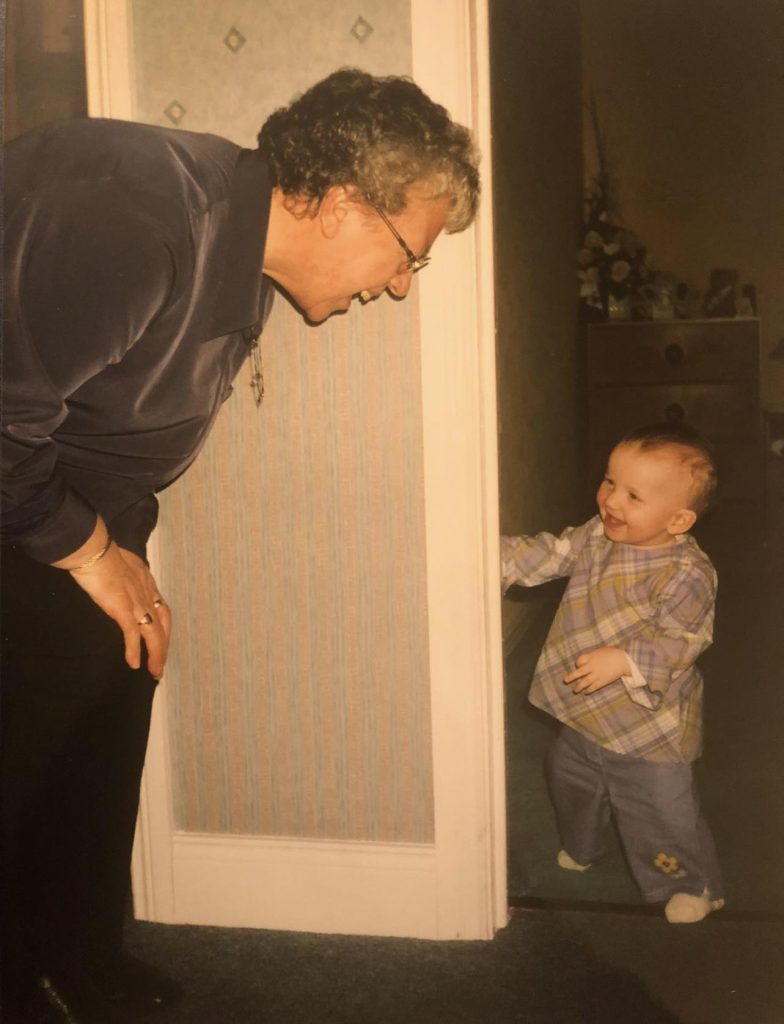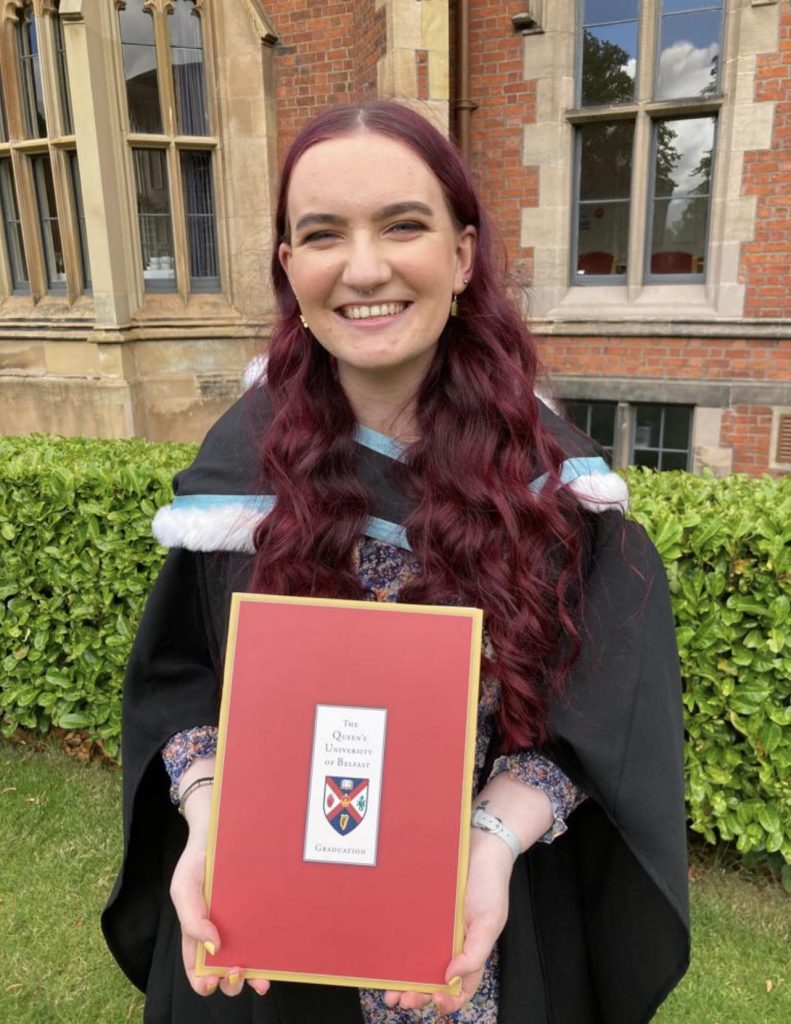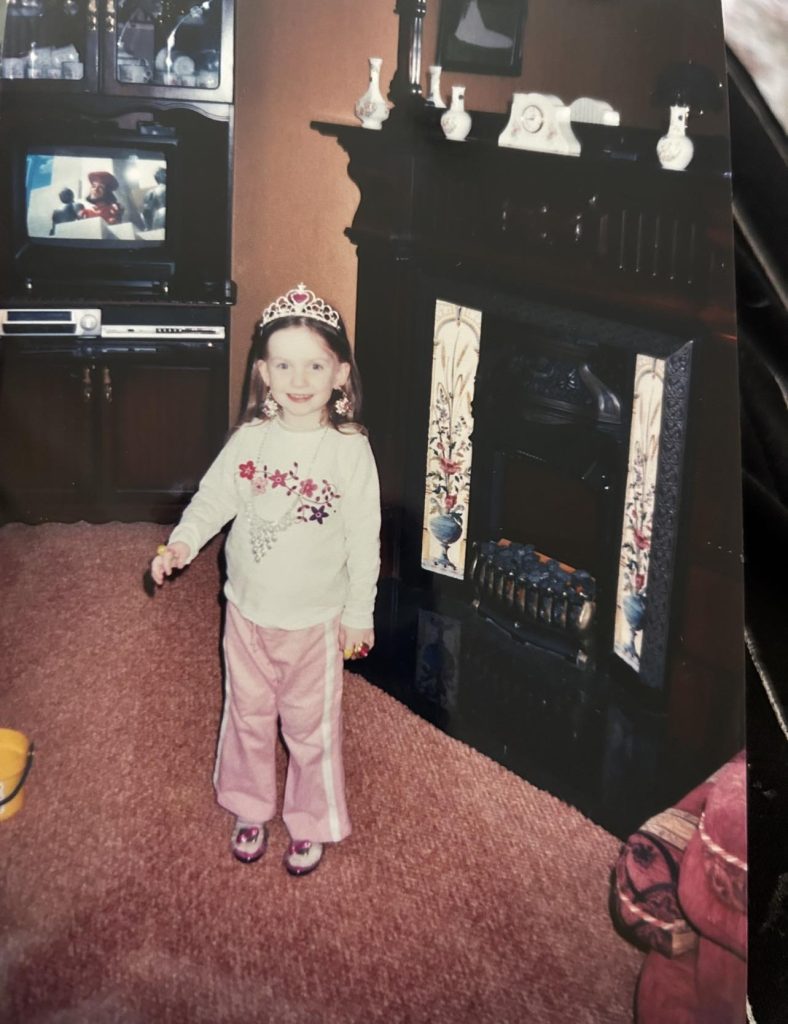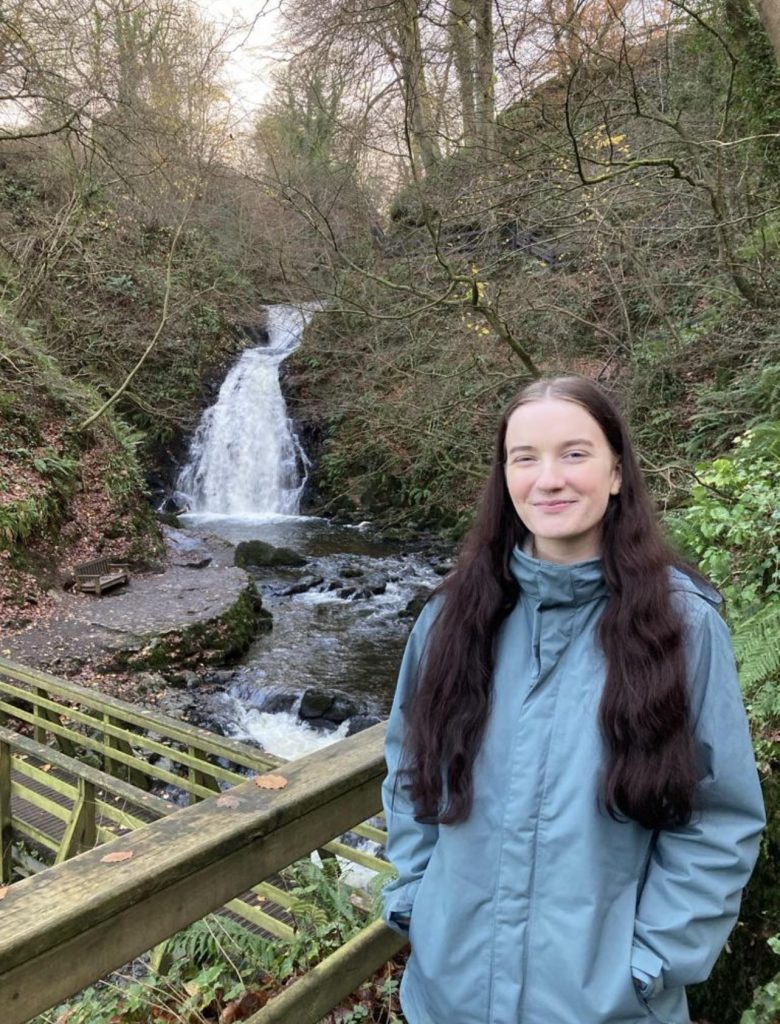Hi, happy Children’s Mental Health Week! My name is Rachel and I’m one of the members of Action Mental Health’s youth panel.
I signed up to be a member of the youth panel because I’ve been passionate about mental health campaigning since I was around 15. My own experiences of mental ill health as a teenager made me want to get involved in work that can help other young people who may be struggling like I was.
I’ve seen the impact of mental illness and suicide in my family and my community from a young age, and I always want to get involved in advocating for early intervention, which includes further mental health support and awareness for children and young people.

To mark Children’s Mental Health Week, I wanted to write a bit about my experiences of being neurodivergent and how this has impacted my mental health, both when I was a child, and also as a young person.
For as long as I can remember I have struggled with my mental health. As a child I thought something was ‘wrong’ with the way my brain worked and I struggled to put my emotions into words. I was easily anxious and overwhelmed as a child, but I was unsure of how to communicate this.
I became further withdrawn as a teenager and engaged in unhealthy coping mechanisms, again in an attempt to express what I couldn’t put into words.
I received support from CAMHs in secondary school to cope with anxiety and depression.
I continued to battle with my mental health throughout university, and whilst I was getting help, after years of going in and out of cycles of depression, I was starting to think that this was just the way my brain worked.
It wasn’t until I was 20 years old that I was assessed and diagnosed with autism. After a psychiatrist suggested I had traits of it, things started to become clearer. The more I researched about autism, and the more I read about the co-occurrence of autism and mental health problems, the more things started to click into place.
I struggled a lot initially with the frustration of not being diagnosed earlier. I started to wonder whether an earlier diagnosis would have meant that I would not have struggled so much with my mental health. Ultimately, I recognised that I was grieving for a scenario that I could not make come true, but I could change how I felt about myself and my identity going forward, and I could keep sharing my experience to others.
Unfortunately, my story is not an uncommon one. The National Autistic Society launched a campaign in November 2022 called “Now I know” which specifically tells the stories of women and nonbinary people who were late diagnosed autistic and their journey to getting there. They write that ‘Various studies suggest that the ratio of autistic males to females ranges from 2:1 to 16:1. The most-up-to-date estimate is 3:1’.
Some research suggests that one of the reasons for this underdiagnosis in girls is because one of the traits of autism called ‘masking’ is more predominantly seen in girls. This is essentially when an autistic person is able to mask or hide parts of themselves in order to fit in. I believe that because of the fact that I was able to due well in school (granted, I struggled too), I fell through the cracks.
I always try to bring neurodivergence into the room when I’m discussing anything mental health, because I truly believe the two are so interlinked, and you cannot wish to make one better without addressing the other.

At 22, I am doing so much better than I ever believed possible. Finding out that I was autistic allowed me to learn more about the way my brain works and allowed me to explore parts of my identity that were previously closed off.
Whilst I still struggle with things, I have learned to develop patience with myself and to prioritise my needs.
I managed to complete my degree and start a masters, and work for a charity like I always wanted to. Learning to accept that having a difference does not make you any less worthy of love, success and joy was what really helped me put things into perspective.
I am so much more confident now in who I am an what I stand for, and I hope to use my voice to help others who haven’t found theirs yet.
Based on my experiences and what I’ve learned about neurodivergence, my hopes are that mental health education will be taught more widely to children. This could be something as simple as teaching children how to identify their emotions, positive and negative, and helping them build up skills to cope with challenging situations.
A huge point towards supporting neurodivergent children’s mental health is making the education system more accessible. Of course, this is not something that can be done overnight, but I think it’s important that we are aware of what we can and should be doing to support children’s mental health.
One example is trying to stop the weight that we put on children to have perfect attendance. Ways to be more accessible to autistic children or adults is to create various learning opportunities, as not everyone’s brain works the same way.
If you’ve read this far, thank you for listening to my story. If you also feel strongly about the need for further children’s mental health awareness and education, you can check out Action Mental Health for resources and to find out how to get involved.


If you or someone you love is struggling with similar issues that I have talked about in this article, you are not alone. Here is a list of places that you can contact to get support with autism: